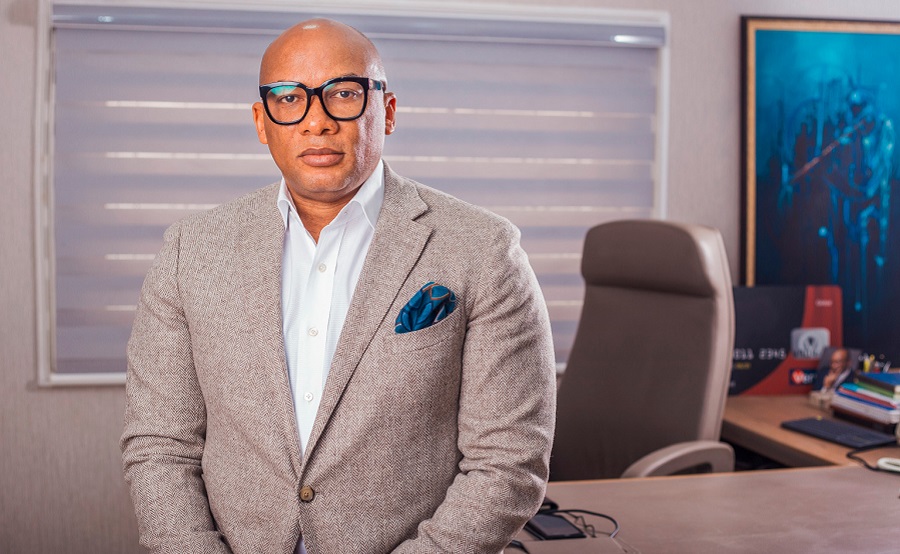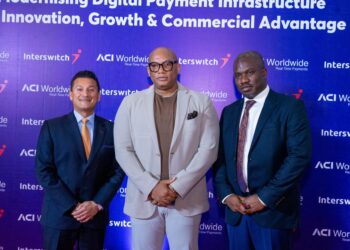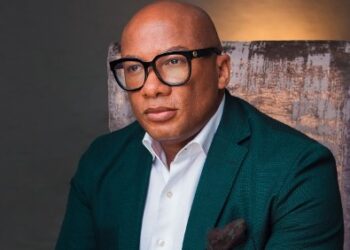In the early 2000s, Mitchell Elegbe was pitching the Switch software to several players in the financial industry, who did not find it interesting or worthy of their money. Roughly a decade later, Elegbe had led the company Interswitch’s growth to over $170 million in worth.
Describing him as the switch behind Interswitch would be most appropriate, seeing as he was the one who brought Interswitch from an idea on paper to Africa’s second unicorn.
Mitchell Elegbe attended the University of Benin, Edo state and bagged a first degree in Electrical and Electronics Engineering. His one-year compulsory National Youth Service Corps (NYSC) took him to Computer Systems Associates (CSA), a software implementation company where he spent a year.
He has gotten further education over the years. Elegbe attended the Global CEO Program at IESE Business School, The Wharton School, as well as China Europe International Business School (CEIBS) for senior executives of organizations.
Read: Interswitch: The story of one of Africa’s earliest unicorn companies
Post-NYSC career
Straight out of service year, Elegbe got a job as a business developer at Telnet, an ICT engineering and consulting company. He worked there for a while before moving to Scotland to work as a Field Engineer at Schlumberger Wireline & Testing.
While in Scotland, he had an embarrassing experience that would later form the inspiration for Interswitch. Elegbe went to use an Automated Teller Machine (ATM) for the first time, only to have the machine seize his card. Since it was his first experience, he had no idea what he was supposed to do right away to retrieve his card.
He later had time to think back on the situation and imagined that people back in his country – Nigeria – had also not had the opportunity to use an ATM. He also reflected on the hassles people had to go through in the country, joining endless queues to withdraw money and having to carry cash around. It was at this time that he decided to do something to move transactions from physical to electronic.
Read: Visa to acquire 20% stake in Interswitch, valuing it at $1 billion
There were a lot of problems in the system to solve; long and stressful journeys to the banks; waiting in long queues, missing transaction deadlines, and increased loss of cash to criminals.
“Many people joined long queues at the banks on Friday evening to withdraw enough cash for the weekend, only to end up losing it to criminals. Some opted for bank drafts to avoid carrying cash to travel, and I remember accompanying my mother to the bank a couple of times to buy a bank draft to pay my school fees,” Elegbe recounted.
Elegbe first raised the Switch idea as a software that would serve as a solution to the problems he had identified. The challenge with this was that most traditional players in the financial industry did not find it interesting, and were unwilling to buy. He then decided to set it up as a company of its own, and with his team, he was able to raise funds with support from Accenture. The goal was simple – ease the burden involved in money transfers and all financial transactions.
Now, it was time to get the business running. Elegbe had hoped to get someone to lead Interswitch as CEO but could not get anyone to step up to the task. He recalled that most of the capable hands then available were expatriates “who expected to earn more than the company’s capital.” He was encouraged by colleagues and his team to take up the position himself, and he eventually resigned his job at Telnet to go lead Interswitch as CEO.
Elegbe had no shares at the outset but the impressive results which the company showed under his leadership earned him and his team some equity in the coming years.
Within eight years, Interswitch had grown in value to about N26 billion (over $170 million), giving early private equity holders some massive returns. The company’s network grew steadily from 7 banks to 13, and then mobile telecommunications providers until almost all the Nigerian banks and ATMs were on its network. Some of its products include the Verve card, Quickteller (for online payments), Retailpay (for mobile business handling) and Smartgov.
He sits as Group Managing Director/Chief Executive Officer and a member of the board of directors at Interswitch.
Recognitions
Mitchell Elegbe has led Interswitch to win many awards and recognitions. He has also received some recognition himself. Elegbe holds the Bishop Desmond Tutu fellowship of the African Leadership Institute. He received the CNBC/Forbes All African Business Leader (AABLA) for West Africa in 2012, the Ernst and Young Entrepreneur of the Year 2014 Award, as well as the International Finance Corporation’s Inclusive Business Leader Award.
During the 2013 Africa Awards for Entrepreneurship (AAE), Elegbe was recognised for business excellence and social impact. In 2019, The African Banker named Mitchell Elegbe the 2019 African Banker Icon. He equally has the Harvard Business School Association (Nigeria) Leadership Award in the General Management Category.



















Ruth, So true! Mitchell is hardworking and highly innovative and will keep breaking new grounds. He is a blessing to Nigeria and beyond.